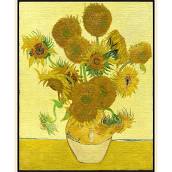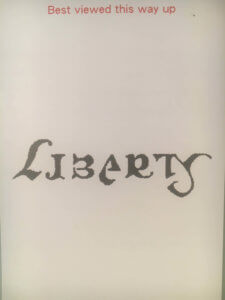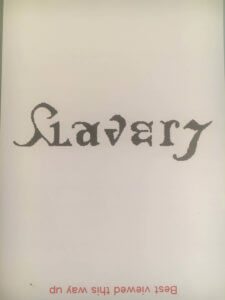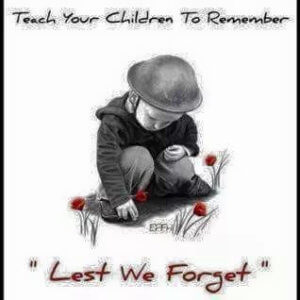
Art, Politics and Social Capital

This week has been an interesting blend of art, culture, politics and work.
Start of the week: As I roamed the Van Gogh museum in Amsterdam I was reminded that you don’t need to like all art, but your life is more fulfilled if you’re willing to explore and learn what you do and don’t like.
Curiosity about the artist is my fascination more than the art piece itself usually: I like to know the context it was created within, and what the artist wanted us to see rather than the tour guide’s interpretation.
The Van Gogh museum is one of the few places where you can experience the art and learn so much from the artist himself, because he provided a narrative with his artwork.
Midweek: Donald Trump was elected as President of the USA. I don’t have the words to describe how I felt about that, but it was similar to how I felt with the Brexit result. Sad. Frustrated. Disappointed: campaigns built on a hatred of ‘the other’ rather than a commitment to unite and build on positives and similarities will inevitably be bad news in the future.
Today: My first visit to The Photographer’s Gallery to see Feminism Avant Guard, which was brilliant. Their website says: “The exhibition reflects a moment during which practices of emancipation, gender equality and civil rights protest movements became part of public discourse”: it was a powerful display of the personal and public spaces merging to create positive cultural change, through political challenge.
Throughout the week I’ve also done some work! It struck me today that it is my work that brings the above together: I was persuaded to accept the gallery’s challenge to create my own art – and it was based on a blend of the above: take a look here at my ‘installation’:
Like Van Gogh, I’ll give you my narrative just in case you interpret it in the way that my kids did: was I drunk? I’m a bit of a weirdo! or as the youngest said:
“Looks like when you’re about to go out and you don’t know what’s clean and what’s dirty so you give it the sniff test!” (He is a student!)
My narrative: The blatant and harsh language and behaviours of politicians like Trump and Farrage reignite a fear of ‘the other’. It is this fear of the other that can result in disproportionate intolerance and restrictions on freedom and liberty. One person’s liberty is another persons slavery as this artistic postcard cleverly illustrates:


The progress we’ve made with equality in this country should not be sniffed at (excuse the pun!), but with this new politics it has become clear that our progress can be undone by appealing to the populous through the narrative and hyperbole of ‘the other’.
The red clothing on my head represents the blood of those lost fighting for equality and freedom in emotional, cultural and physical wars (its Remembrance Sunday for those reading this later than today). The appeal of ‘the other’ blinds people to our similarities, and conveniently forgets the past blood shed: it covers our eyes, our ears and our mouths so we don’t learn about and from each other any more.
The black socks on my hands represent the darkness of the hands ruling our world: the world that the politicians create when they talk of the ‘great’ future they will pursue when they’re elected. The socks are a symbolic statement that reflects they don’t get it right – we obviously don’t wear socks on our hands, except through puppetry of course! If they want to hold hands with the populous they need to take those dark socks off their hands and care with them.
In my ‘art’ I throw off the clothing of hatred, and the incorrect use of the clothing, and I cover my eyes with the bright yellow material. It’s bright. It’s sunshine. But like Van Gogh’s sunflowers, we know it is not always as bright as it might seem, and we are blinded by our own ignorance. If we accept we can’t know everything about everyone then we must learn to discover the future with each other not against each other. We owe it to ourselves to get to know each other and learn to live with each other don’t we? Isn’t it time for a new social contract, a new positive politics and a new way of being with each other?
That learning occurs when you are curious about ‘the other’ and you welcome them into your world. You explore your fears together and you find a shared space to be positive. We must have some of the private and personal discussed in the public domain if we want to retain the good parts of our democracy.
If we keep voting for people who don’t display curiosity, who ignore authentic voice and insist on applying their own narrative of what they think we want and need, we won’t have clean hands in years to come. But we will have a lot of blood. Again.

Like the art I saw this week, I don’t like our political narrative at the moment: I particularly don’t like the politics of Trump and Farrage. Their interpretation of what is best for people who they don’t know or talk to is the exaggerated state of many of our public services: ‘engagement’ is often used as a tool to ‘tell’ people what they want and need but not to listen to them. Often those public servants are frightened to discuss the potentially controversial topics, yet those topics are exactly what the electorate wants to discuss.
My work this week, as with many other weeks, was on that topic – if the statutory agencies listened and engaged with those they serve in a more effective way in between elections and crises, they would discover the mass of energy and strengths that communities have, and the various ways in which they can become part of the solutions to local ‘problems’.
Our society doesn’t need Trump and Farrage style politics. It needs more creative ways of enabling local people to express their opinions and values on a regular basis so that we avoid the build up of marginalisation that so often results in ‘surprise’ election results.
I started this blog by saying you don’t have to like all art but your life is more fulfilled if you are willing to explore and learn. The same is true of people and communities; and dare I say it, democracy! Let’s have more collective conversations, and creative art to document this era, and let’s hope my grandchild goes to our gallery in the future without listening to someone else’s interpretation of that era – so don’t forget your narrative to go with your art because he may be like his granny and want to hear the authentic voice!!
That was my week…never a dull moment.
